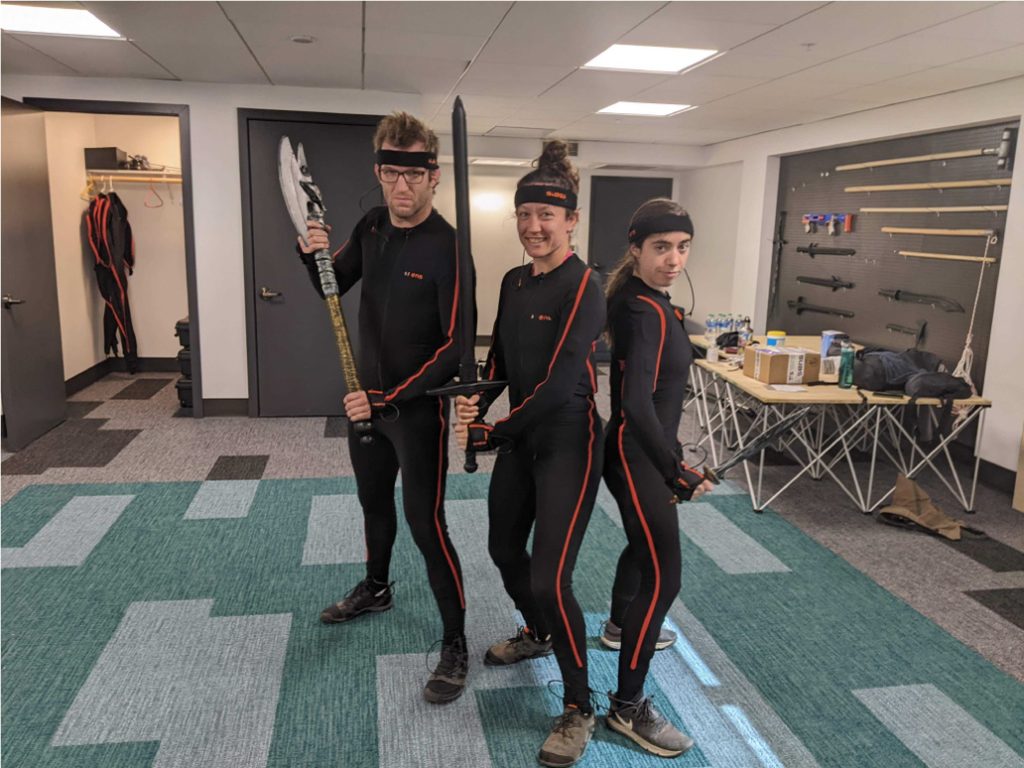When people think of the process to create a movie, they probably imagine an incredible number of people, actors, set designers, etc. coming together in amazing ways to make something great. The game industry is still pretty new in comparison, yet there are plenty of myths and stereotypes about the industry and from the outside, it might seem like it’s “all fun and games.”
We asked our studio what were some of the most common myths they’ve heard about working in the industry. The myths ranged from “if you work in games, you must be rich and famous” to game studios having the position of “Game Idea Thinker Upper” readily available. For those of you that are curious, considering a career change, or new to the industry, we want to take some time today to debug…er debunk…a few falsehoods.
Myth #1: Making a game is easy and fun all the time
Hahahaha ahhh… (*cries in JIRA tickets*) ahem. Anyway… While there have been tons of advancements in tools that make game design much more accessible to an aspiring developer, taking a game from an idea, to refining a work in progress, and finally turning it into a published title requires serious dedication. As our Senior VFX Artist, Cliff Westfall described, “It’s an awesome job, but it’s still a job. It requires hard work and perseverance.”
Playing the game you’re working on is essential, as is being knowledgeable about other games, but it’s just one aspect of the process. One aspect of the game industry that can set it apart is the passion individuals bring to their work. They love video games, inventing characters and universes, designing worlds, and building systems to create incredible gaming experiences. That being said, game development is still a job. Just because an individual is doing work that inspires them, it isn’t necessarily easy, or even fun, all the time.
For a AAA title, each stage of game development requires specialized skills and knowledge and even with these skills, developers face numerous challenges, like technical limitations, compatibility issues, and unforeseen bugs and glitches. Seeing an idea that started as a drawing or some words on paper come to life as an actual feature in a game can be awe-inspiring, but part of that awe is remembering all the hard work it took to make it happen.
Once in a while, we do get to play games. In fact, our studio recently hired a few individuals just to play our game. And play and play and play and play…all so that we can collect important data for our teams to optimize frame rate and ensure the game runs smoothly on release. Maybe it’s fun on the first few playthroughs, but can you imagine playing the same game over and over again as your job? It might be rough even for hardcore gamers.
Myth #2: You have to know how to program to work in game development
If you want to make a game by yourself, you may need to learn some basic coding skills. However, if you want a job in game development, programming is just one of many pieces that come together to make a video game. Big budget games often have large teams comprised of many different, yet vital roles contributing to all aspects of the game. You need designers to articulate where objects are placed in the level and balance player and enemy skills to make sure the game is fun and has good pacing. You need artists to ideate and sculpt a cohesive world, regardless of if it’s in 2D pixel art or realistic 3D graphics. Producers will be critical for deciding what to prioritize, how to keep the game in scope, and help eliminate roadblocks so that the whole team works together fluidly. A few more critical roles include skills in music and sound design, animation, user interface design, pipeline management, writing, quality assurance (QA), visual effects, and more.
These are just a few of the roles that are specifically within game development. Just like other media industries, game companies also need people specialized in a vast array of skills: marketing, law, business development, IT support, operations, recruiting, and more. Even if you decide you don’t want to work directly on a game, there are tons of opportunities to provide support and get involved in the game industry. Plus, just you might get conscripted to assist with some mocap shoots. You never know! ; ).

Myth #3: All of the jobs in game development are in California and you better have a good connection in the industry.
Although Ascendant Studios is based in California, our team is distributed across the United States and Canada, with some team members located even further away in Europe and Asia. Even before the pandemic, there were tons of game development companies outside of California, let alone the United States. A few other game development hubs you might want to explore are Seattle, Washington; Austin, Texas; and Boston, Massachusetts. Additionally, other countries like Canada, the United Kingdom, Japan, and Australia have thriving game development industries.
With the pandemic, many game companies embraced remote or hybrid work. For our studio, it has allowed us to expand our team with incredible people we would have never gotten to work with without the option to be remote. By hiring remotely or expanding into other areas, a studio can diversify their talent pool and take advantage of different perspectives and skillsets. At Ascendant, we find that allowing our employees to continue to work remotely if they choose to lets each team member work in the way that they find is most productive.
As in most industries, having a connection or a personal referral may help get your resume in the door, but it’s not the only way to get a job in the game industry. The most important piece to getting a job at a studio is having a fantastic portfolio–whether it’s code you wrote, audio you produced, or art you created, making sure your work is of the caliber that a studio is looking for is key. This can be done even if you haven’t worked on a game before. Additionally, take advantage of networking. Build connections by attending career fairs and game dev meetups, and practice interviewing. Follow studios and developers who you find interesting on LinkedIn and social media. Read up on what they’re doing for their game and the industry so that you can speak knowledgeably about those topics and nail your cover letter and interviews. If you’re still in school, don’t overlook smaller or lesser known studios for potential (and possibly even remote) internship opportunities.
What other myths do you think budding young developers have heard about the game industry?
Stay in touch
Learn more from our team as well as some of the industry’s leading developers as we share insights into game development. Check out YouTube for more content about devs sharing their experiences creating some of the best games ever made. Our original podcast series, Rise Above, delves into the world of video game development through candid conversations with some of the industry’s leading devs. Our pilot and a special bonus episode are available now, and Season 1 arrives later this year!
Check our blog often, subscribe to our newsletter, The Standup, and follow us on YouTube, Twitter, TikTok, Instagram, Facebook, and LinkedIn to keep up with our game, Immortals of Aveum™, as well as all of our other exciting content.



